Digital 52 2️⃣8️⃣ - On financial sustainability, learning to do less, preserving buildings, activating neighborhoods: the story of Voisins.

Today’s story will take you to Switzerland, more precisely to Geneva. What’s there? A coworking brand that has been steadily growing in size and impact across different neighborhoods and cities: Voisins.
Inclusivity and Diversity - Positive Impact - Reviving Buildings
Read the full story of Voisins on page 340 of “Around The World in 250 Coworking Spaces”
The beauty of coworking lies in its versatility - it doesn't have to be limited to just one purpose. The flexibility and diversity of the model allow it to serve multiple functions simultaneously. Today's coworking space is not just a workspace, but also a café, an event venue, or even a private office for some. It's not just a physical space, but a social hub that has been steadily transforming residential neighborhoods in Geneva and beyond. In fact, the name itself, Voisins (which means neighbors in French), reflects its vision. How did Voisins come to exist in the first place? What has the brand's journey been like so far? You're about to find out.
➡️ A little refresher
Who’s behind the featured space?
Meet Anne, Philippe, Michaela, Renaud, Mathias and Kaspar. All co-founders met mainly through common passions - either in sports or in previous entrepreneurial projects.
And if you wonder why Voisins has 6 co/founders, keep reading to find out!
➡️ Key Figures
- Opening year: 2014
- Size when they started: 1
- Size today: 5 spaces, soon 6.
➡️ A little tour around Voisins
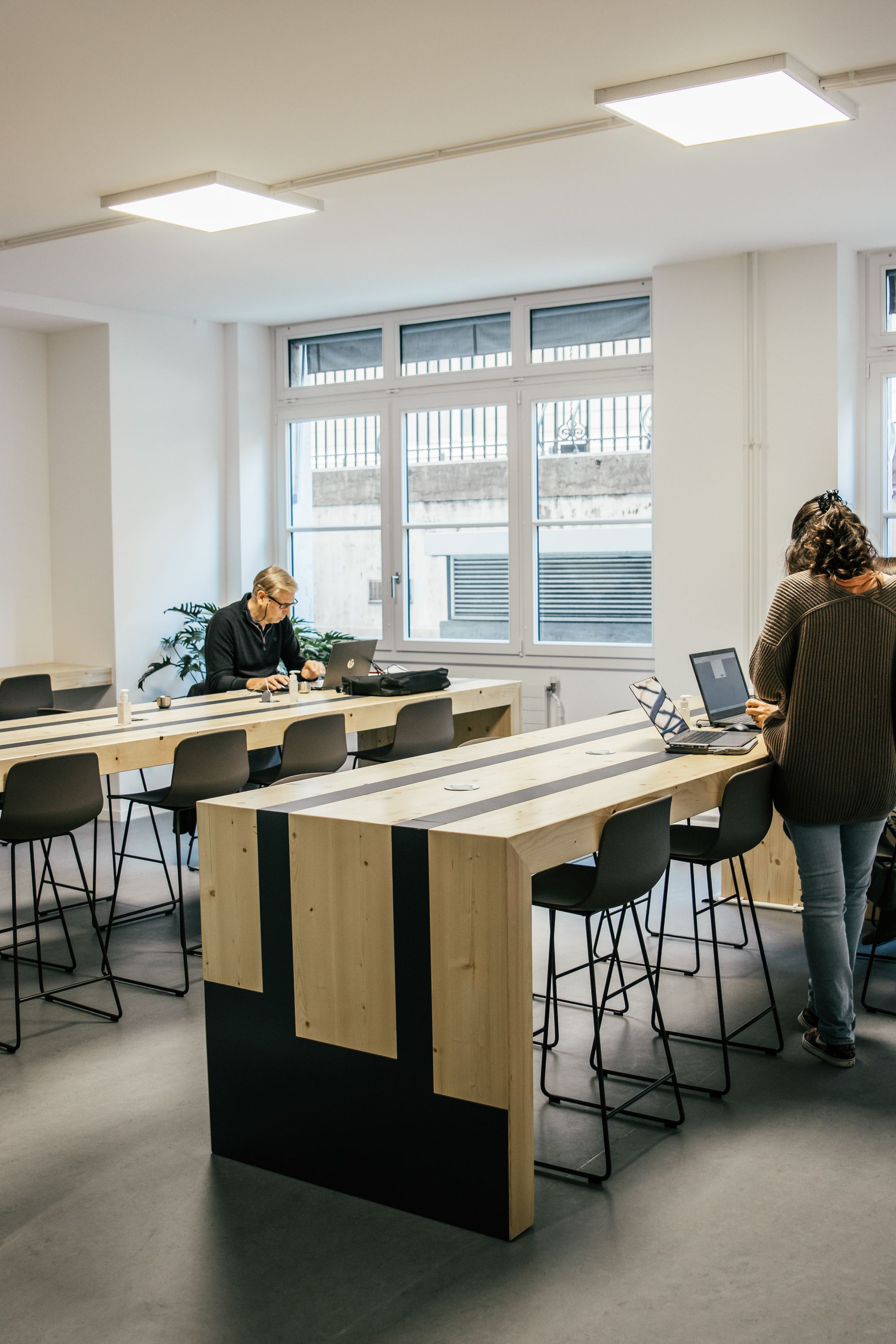
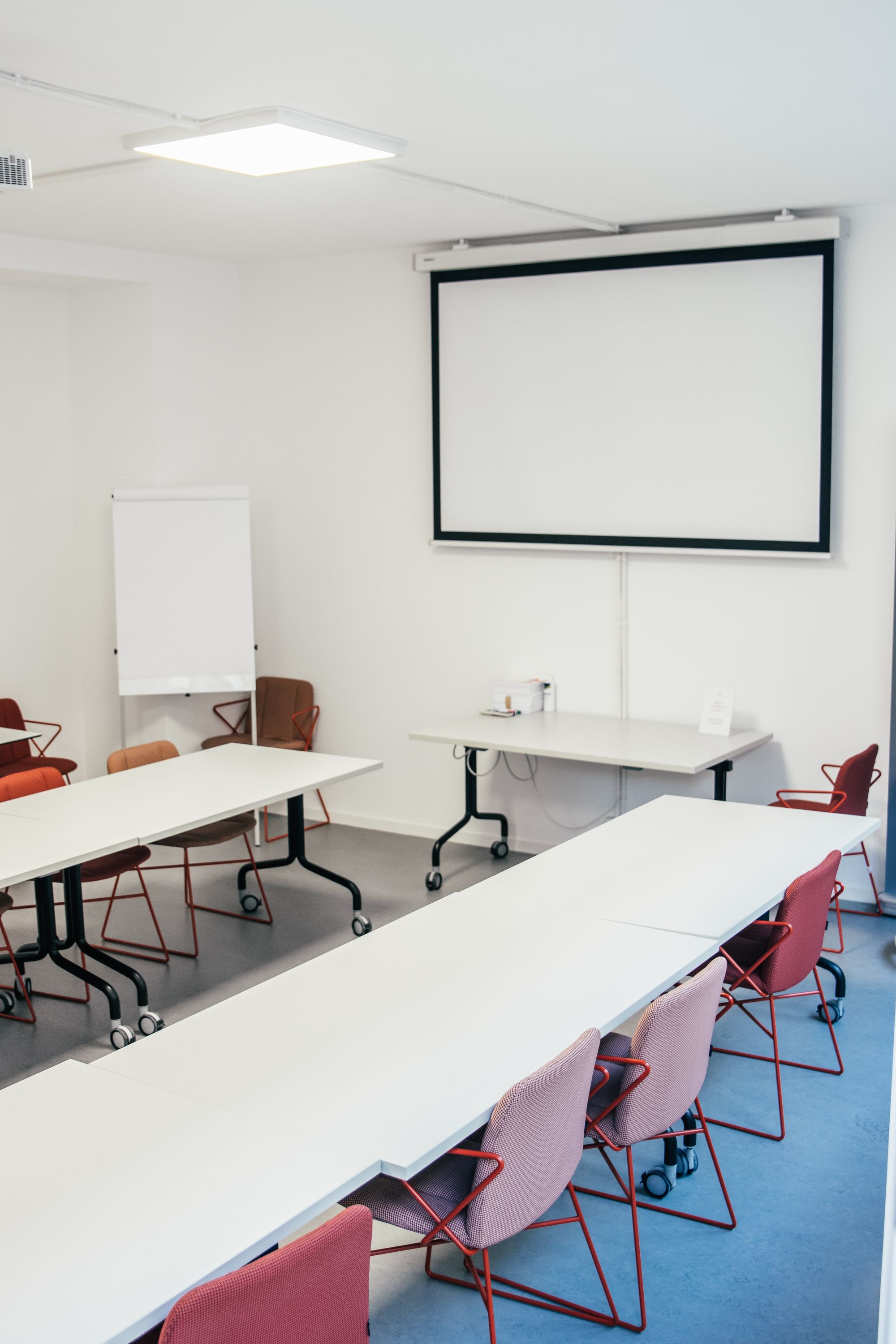
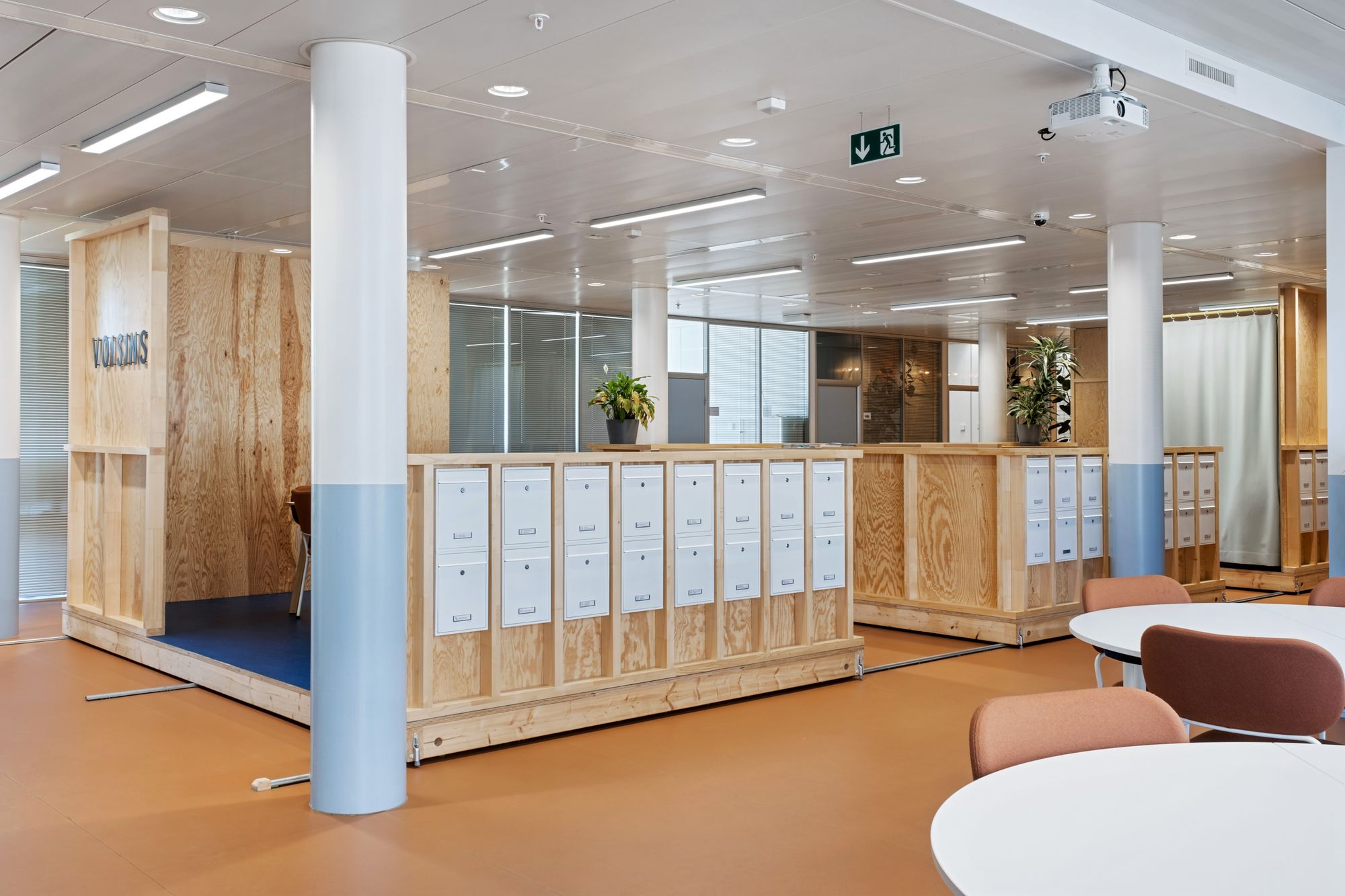
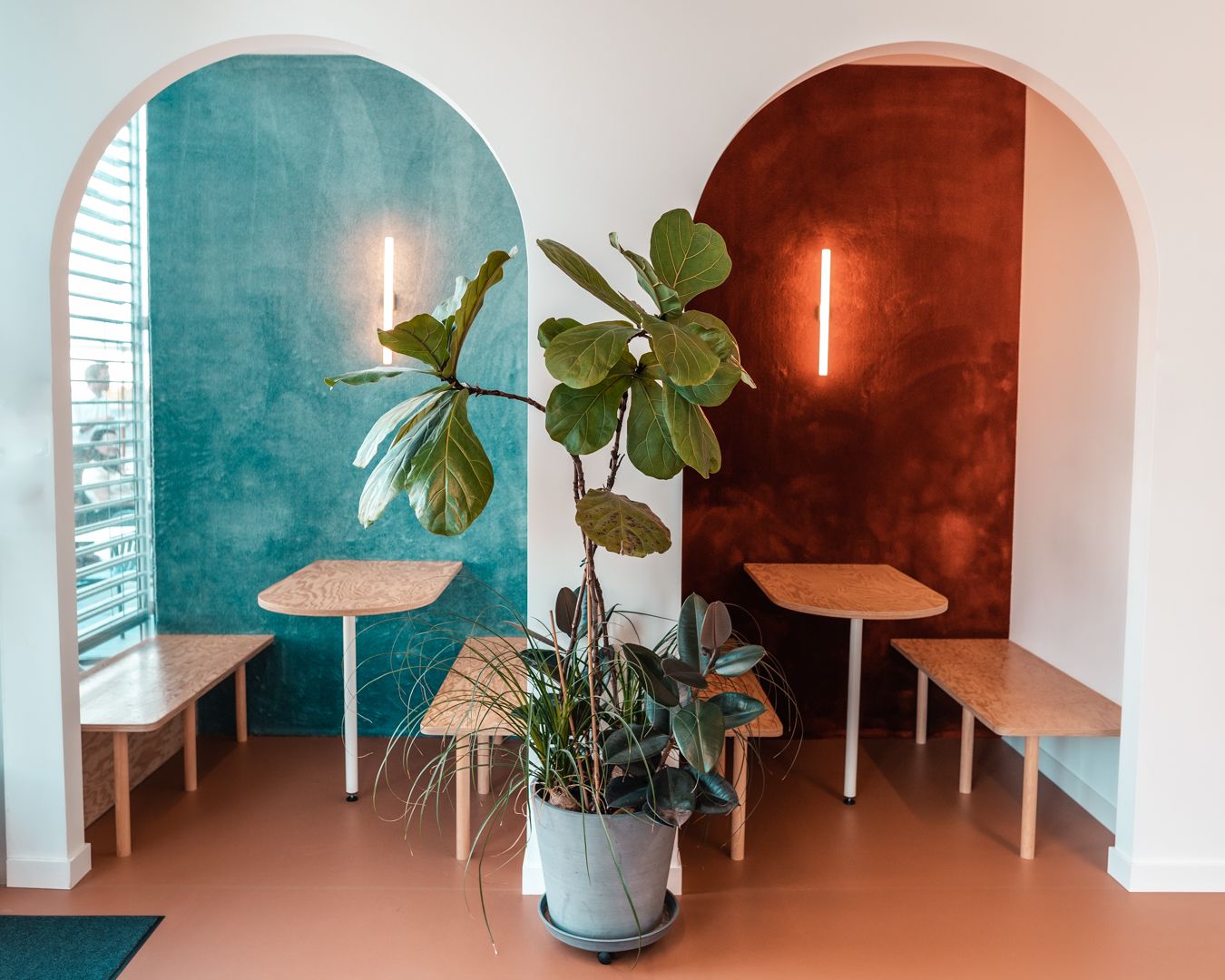
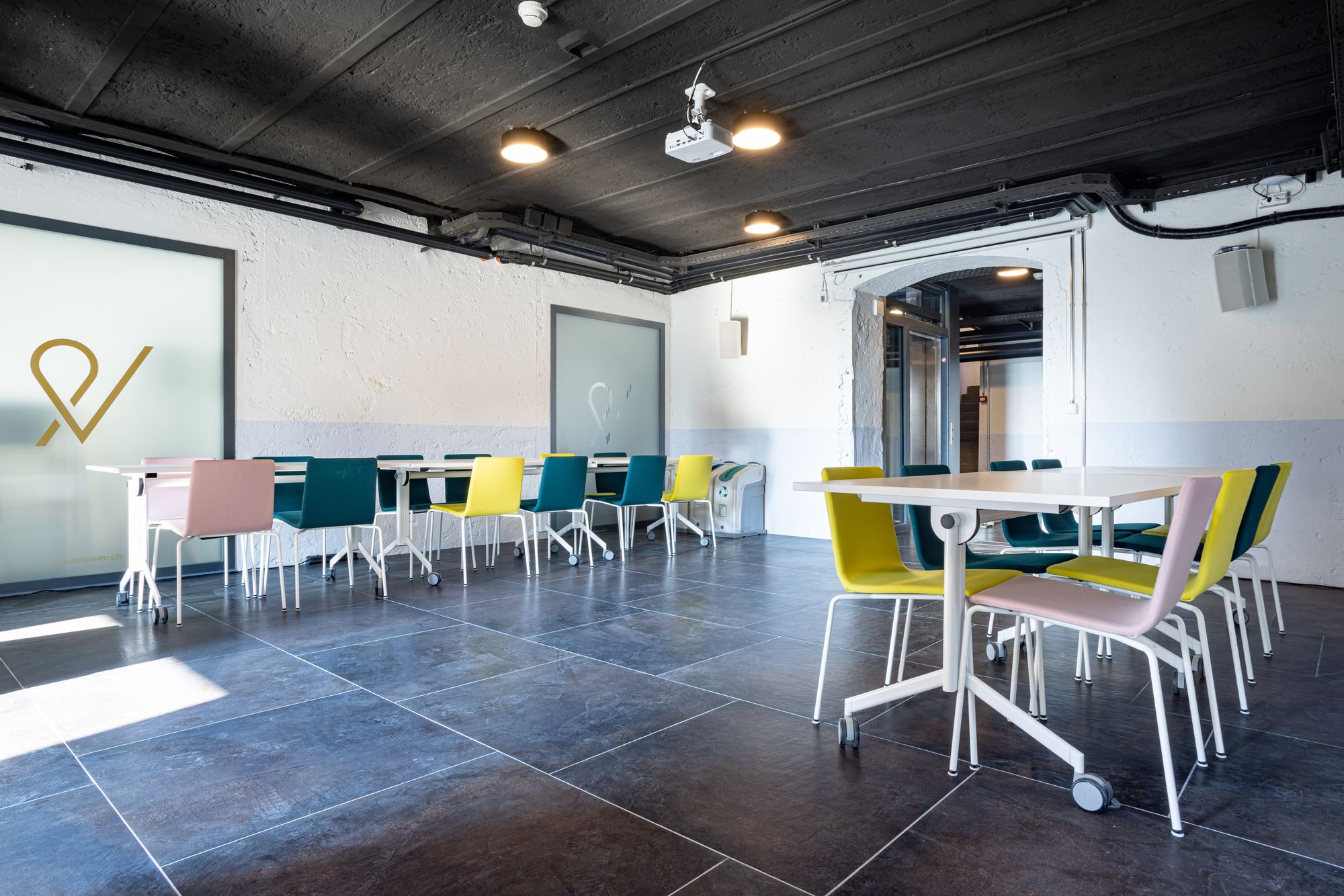
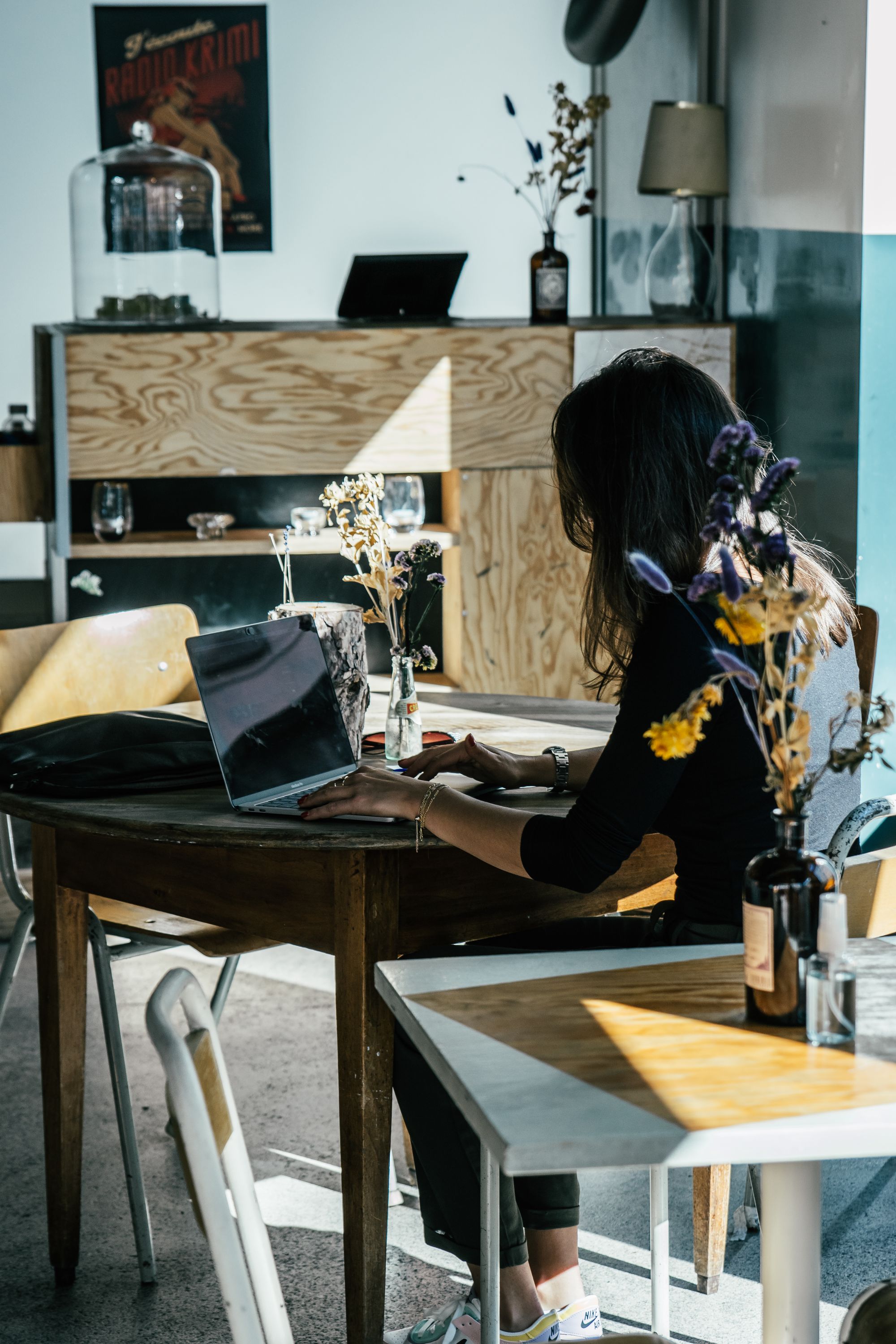
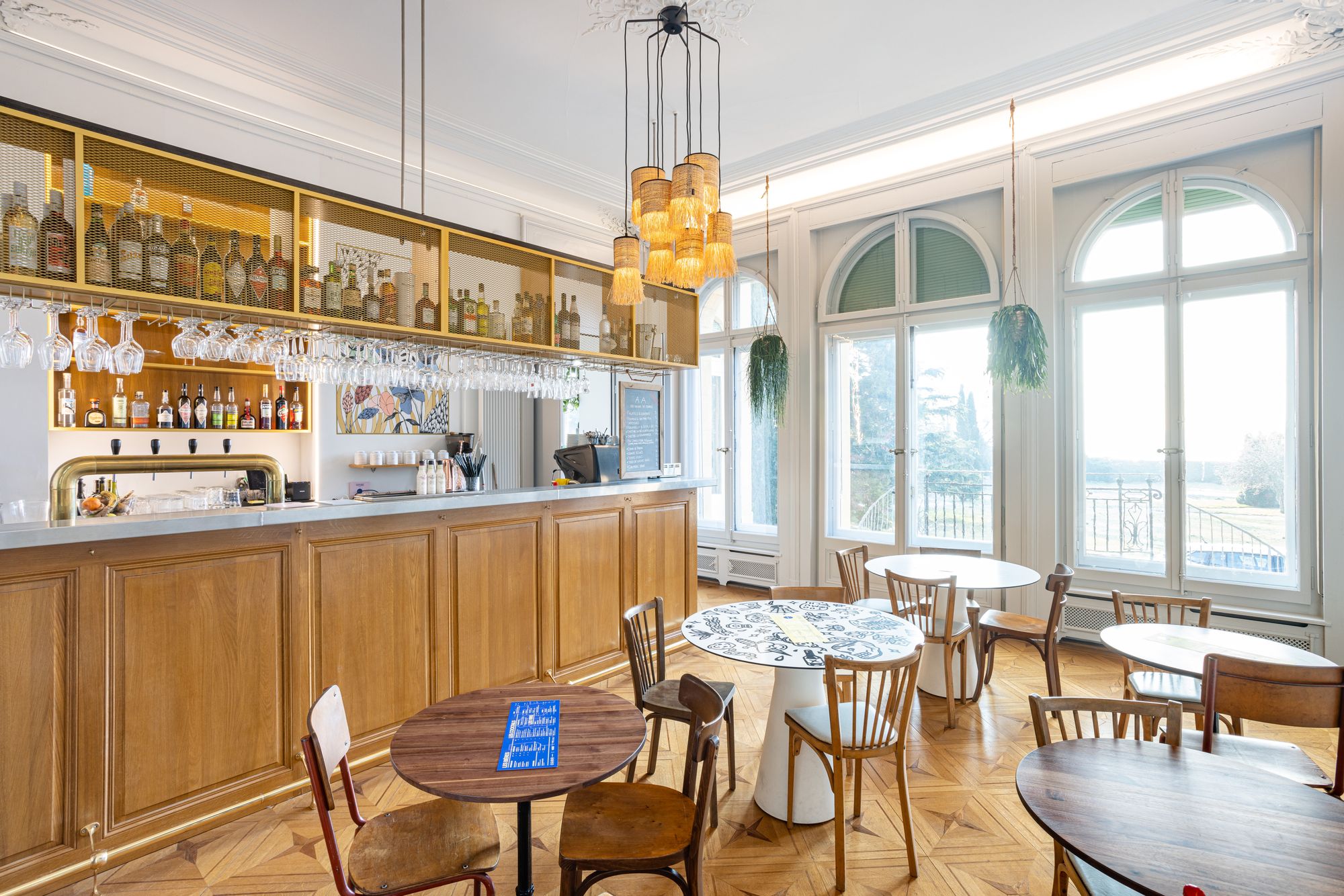
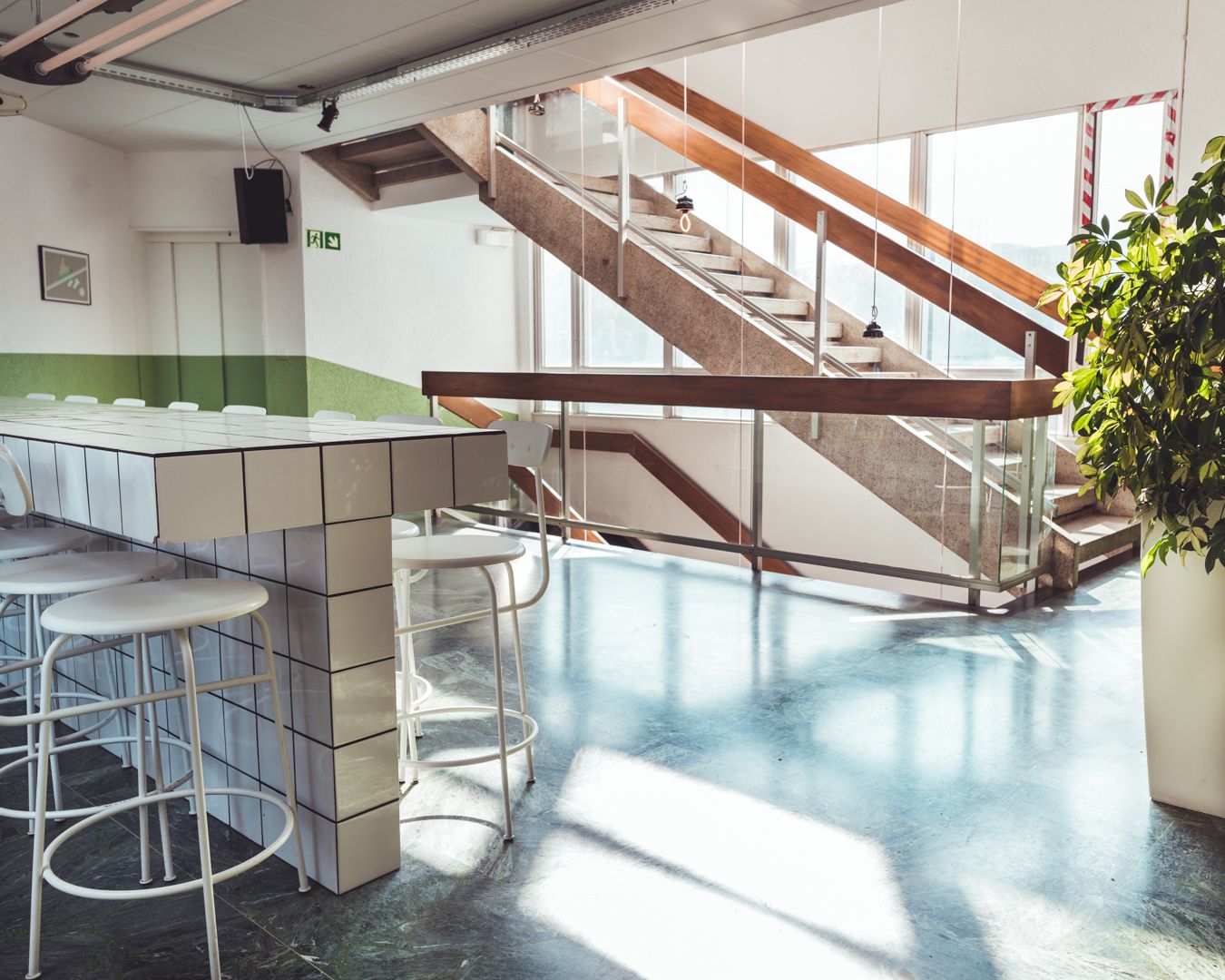
➡️ Behind-the-scenes
Things you didn't read in aw250cs.
“All the cofounders having been in situations previously where a lively coworking space would have been ideal, we noticed with pleasure that such places were getting created in the big cities of the world. We realized that the time was ripe in a rather small city like Geneva and started Voisins.”
My biggest lesson would be that humans are always at the center, both in a positive and negative sense.
Kasper Danzeisen, Co/Founder of Voisins
➡️ Voisins Today
As you are aware by now, Voisins currently operates 5 locations. Each of these spaces offers a café, a coworking area, private offices, and event spaces. Considering that all these businesses were severely impacted by the pandemic, we asked ourselves how did Voisins manage to navigate through these challenges. The reality is slightly different from what one might imagine. While Voisins did face impacts from COVID-19, it did not hinder the brand from operating and even growing. We recently had the opportunity to speak with Kaspter, one of the co-founders, and Manon, Head of Operations, to gain their perspective on the journey that has brought Voisins to where it is today - not just the challenges posed by the pandemic, but also the past 9 years of building their brand in Geneva and beyond. Despite encountering obstacles along the way, it has been a journey of continuous learning for both the team and the brand, moving towards their mission of positively activating neighborhoods by creating vibrant spaces for social interaction in various ways.
💫 More openings, A new type of members
While Voisins’ growth has been slowed down by the pandemic it didn’t stop it. The brand has opened 2 spaces in 2021 and 2022 and more are on their way. We discussed their growth path together with Kasper and Manon, keep reading.
While the pandemic has hit Voisins really hard due to the nature of their business, the post-pandemic wave has brought a new clientele to the space as well as new opportunities for Voisins to grow in size and in impact.
I’d like to start by asking you: what’s new at Voisins since September 2021? (the month the book was released)
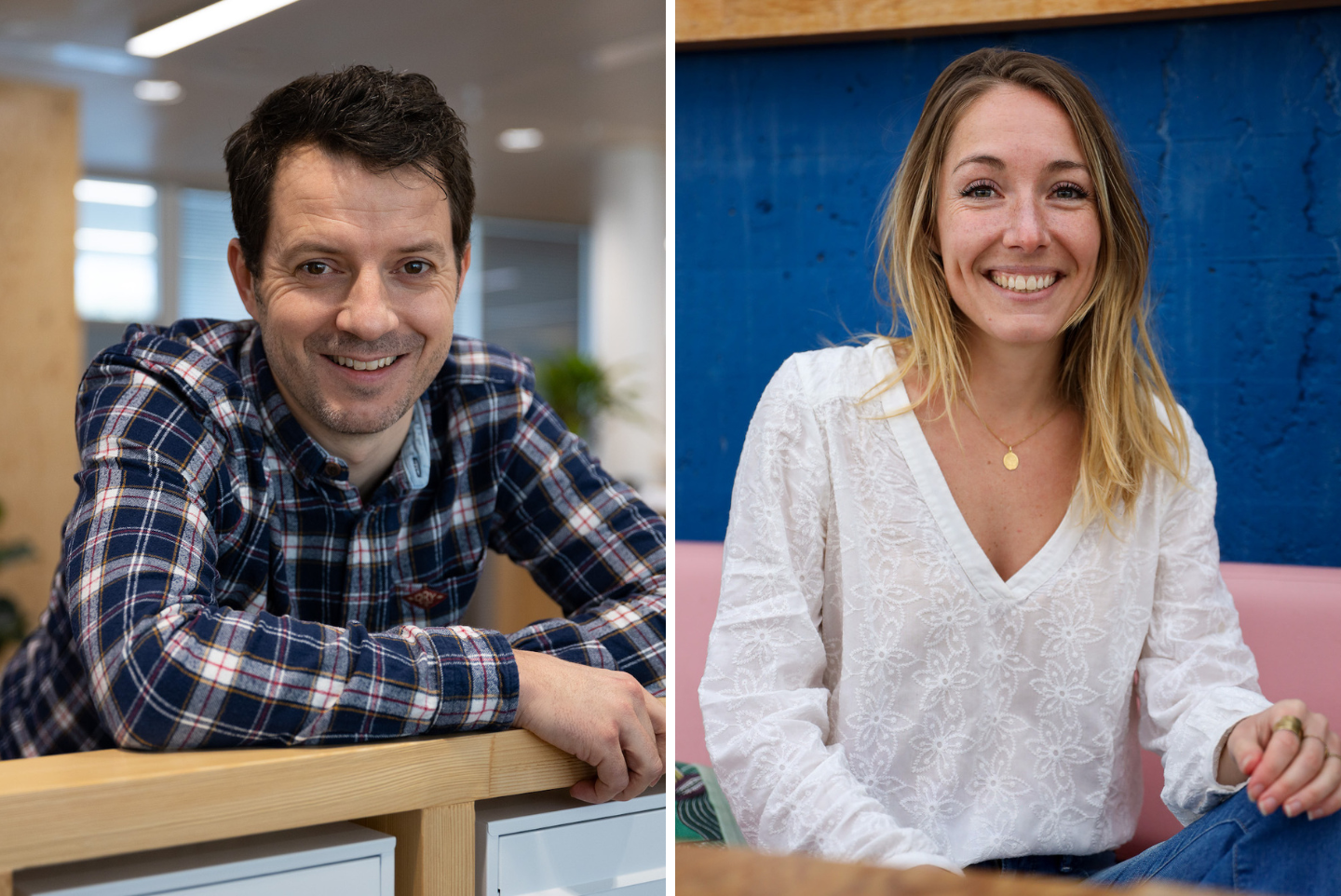
Kasper: Since September 2021, we have continued to open more locations, including the new Voisins de Saint-Gervais Center in downtown Geneva, and we also launched Voisins Monruz in early 2022. These are two significant new venues for us that we opened right after the publication of your book.
Speaking of new locations, we are also expanding beyond the canton of Geneva with our first location outside our initial area. Our next project is called Voisins de Collex-Bossy, and if all goes well, it will open in early 2024.
In addition, we will also open a new floor in an existing Voisins site, Voisins Blandonnet, which is itself situated in a larger building called Playground. We operate it for the building owner who is looking to activate his sales and conference center by adding a coworking space to it.
You now operate 5 spaces across Switzerland, how did growth happen for you guys? Was it always planned?
Kasper: I’d say yes and no.
From the very beginning, our intention was to establish a network and open several locations. However, we didn't approach the project as a typical venture capital or startup project with an initial plan for multi-million dollar investments, followed by a break-even moment after three years with significant losses, and so on. Instead, we always focused on pushing for organic growth and building upon the activities we had already established, resulting in slower but more sustainable growth.
We have been in existence for 8 years and currently operate five spaces. Despite facing some impact from the Covid pandemic, which has slowed down growth in general, we believe this answers your question. Yes, we did plan to open multiple locations from the beginning, but no, we did not envision 30 locations in three or five years, which would require finding 15 million in funding.
We have always co-founded and co-financed all our sites, with the initial co-founders providing the financing.
We are currently in discussions with an external investor to further boost our growth, as we continue to seek an investor who aligns with our values and would be a part of our team, rather than a purely financial or venture capital investor.
What was the hardest part, going from one to two, or two to many?
Manon: Physically covering all these locations can present challenges in remote management. Therefore, it is still necessary to have people who can operate your centers autonomously.
We are seeking profiles that are somewhat entrepreneurial in nature, as managing humans is always a complex task. Humans exhibit diverse personalities and skills, which make them unique and beautiful. When attempting to standardize to establish a common thread and DNA, it can be beneficial. However, we acknowledge that each place has its own unique qualities.
Nevertheless, we are committed to maintaining a consistent customer experience while also allowing room for individual expression. Striking the right balance between standardization and preserving the distinctiveness of each location is crucial. In summary, our approach involves standardizing processes while also accommodating individual expression.
What’s the biggest change the pandemic has brought to you guys?
Kasper: We had several areas of impact during the pandemic, as we operate cafes, so the 'financial breathing space' was greatly affected. We were forced to close the cafes, resulting in a significant loss of revenue.
We also lost almost all of our room rental revenue during the pandemic, as companies were conducting fewer physical meetings and a good portion of our nomadic subscriptions, for two reasons:
- First, people stayed at home, especially during phases of confinement or spikes in cases.
- Second, with the increasing popularity of Zoom meetings and remote collaborations, people had less need for spaces like ours.
However, we did see a positive development in new customer segments that showed interest in our offerings, particularly larger companies that were forced to switch to the home office and hybrid online-physical collaboration models.
In fact, the comparison before and after is the most significant difference. Coworking was originally focused on independent workers and perhaps startup founders who were working on their projects with a bootstrap mindset, and it was seen as an alternative, creative, and somewhat hippie movement.
However, even before COVID, coworking started to gain credibility and became more mainstream, with an increasing number of customer segments showing interest in our services. The pandemic accelerated this trend dramatically. Now, SMEs and larger corporations readily consider and utilize services like ours as part of their diverse range of workplace solutions for their employees. That's the before and after, I would say.
Manon: The change in the type of clientele has opened up horizons as well. As Kasper mentioned, we can see that there are a lot more people interested in this way of working, and we have companies that are even financing subscriptions.
For example, the Playground project is located in a very large business building with shared spaces and is owned by one of the largest real estate funds in Switzerland, and possibly in Europe. Moreover, the owner of the Playground project aims to implement dynamics similar to coworking, but for everyone, reflecting a mindset shift and a realization that is pervasive in large parts of the economy, or at least in the economy that relies on offices, in my belief.
This has been activated and awakened by this transition imposed by the pandemic.
And speaking of the Playground project, how did it come about?
Kasper: It came to us. Actually, it was the owner of a building that had emptied out. There was a tenant occupying almost 80% of the building. The building is located in a neighborhood in Geneva where there are many vacant spaces. The owner was concerned about not being able to fill this 22,000 square-meter building, which is quite large on the scale of Geneva. So, the owner brainstormed on how to stand out and attract tenants. He initiated the discussion and invited us to explore possibilities to increase attractiveness for tenants on different floors and differentiate the building from others, to have something to communicate and not just be an empty shell. That's how the discussion happened.
Manon: They started by dedicating half a floor. The Playground is a playful and quirky space where we offer meeting rooms, conferences, and sports classes, similar to a Google campus. The space also offers beauty, wellness, manicure, and hairdressing services. For us, it's about infusing more vibrancy into the place with everything.
Voisins means neighbors in French, what did you want the name to transpire when you chose it?
Kasper: Our headquarters and first space are located on Rue des Voisins. So actually, it's the address that gave us the idea. But initially, we searched for names that started with 'Voisins' because of our location on Rue des Voisins. After weeks of brainstorming and research, we decided to come back to it. Not only because it's the address where we started, but also because the values and connections that people associate with this name fit perfectly with our vision.
I believe there are few people in our lives whom we know better than our neighbors. We share a sense of closeness and community with them. For us, Voisins represents an active neighborhood, and that's our goal - to create an active community. But we also respect the privacy of others. In terms of our positioning and the word 'Voisins' or the concept it represents, it aligns perfectly with our understanding of what we want to highlight for our members.
Manon: The name also reflects our values and strategic choices. I am thrilled to work for Voisins because when they establish themselves, they also stimulate the entire ecosystem. We support our neighbors through our choices of preferred partners, prioritizing local connections. There is a real aspect of mutual assistance, community, and dynamic development. That's what a region or a commune is all about.
Voisins also offers a café and a bar in each location, how has the experience of handling a food and beverage business on top of a coworking business has been for you guys?
Manon: There are many challenges. It's true that it's very time-consuming, but at the same time, it helps to liven up our spaces and allows us to differentiate ourselves because conviviality is part of our DNA.
For me, it's a great platform for expression, networking, and more. It's a showcase for our brand. However, it's also an industry with strict regulations, including different collective agreements for the restaurant sector, which impose constraints on employment contracts and working hours. This has required us to make many adaptations in our brand journey.
There are also regular inspections that can be cumbersome. But we manage to make it work by hiring candidates who are flexible. During the hiring process, we specifically look for candidates with experience in Food & Beverage, as they usually have a sense of service.
Why is having a café in each of your locations important? What does it bring to your spaces?
Kasper: It's a communication vector. The ambiance of a café, with its food, drinks, and conviviality, can be more effectively conveyed compared to meeting rooms and workstations. This is clearly one of the significant advantages of having cafes in our locations and operating them ourselves.
Our spaces are easily accessible with daily walk-ins, making it simple for people to come in.
Manon: With that being said, clients who come to our cafés are not necessarily the same customers as those who use our coworking spaces.
Kasper: Exactly! There's also the Starbucks-like clientele who enjoy working in a café. Many of our customers come to our cafes and work there almost every day, but they would never take a coworking subscription because for them, working in a café is just fine.
Our cafés are not necessarily an automatic or direct funnel where everyone who wants to work will go through the café and then sign up for a subscription. However, it's straightforward to access our offerings and start without an initial commitment. Customers can start with a coffee, experience our café, and eventually transition to office subscriptions.
What do you look for when choosing a new location?
Manon: That's a good question. Our dual activity, both F&B and coworking makes it more difficult to find an ideal location for both but we're primarily looking for accessibility. First, we are looking for locations in relation to existing centers, we already have. Secondly, we look at spaces in relation to the neighborhood it is in or a city where we see the potential.
We're looking for cities that are open to the dynamic world, or neighborhoods where things are happening, where our target clientele is already present, which is mostly professionals aged between 30 to 45, in digital or knowledge-based professions.
Kasper: And then we look for places that are accessible by public transportation, or at least by car, but also by public transportation. We especially look for buildings with characters or premises that already have their own ambiance. It's about having a distinct character and identity. Ideally, because as Manon said before, we try to give each new place its own identity. That includes the architecture and the character of the building and its surfaces.
We have some quite unusual places. For example, in Neuchâtel, we took over a private hotel years ago that we left somewhat in its original state, and as a result, there are workspaces that are still located in quite unique places. You come to work in a place with a view of the lake, which is quite a nice view to have.
It's also about sustainability. The value of sustainability is also reflected in the choice of buildings we make, and we always prefer to take over existing places that have been abandoned and give them a second life.
Generally, and because we are open to the public, we also activate an eventful dynamic wherever we go.
➡️ Reflections on building Voisins
What has been your biggest learning out of bringing to life AND growing Voisins?
Kasper: We have learned a lot from this experience. We are in a new field that didn't really exist before, not in Switzerland, but even internationally. We started in 2014, it was still just a ‘movement’, and then it became a completely new market. So we had to learn everything by doing.
But if I had to take away one thing, then my biggest lesson would be that humans are always at the center, both in a positive and negative sense.
Many of the successes we've had were thanks to the people we have with us, our team, and our customers who make us who we are. And likewise, the biggest challenges and failures were always related to human factors. So a note to myself would be to really focus on that and truly understand what we're doing or reflect on what we're doing in everything we are, in all our activities, and in our overall strategy.
Manon: Coming from operations, the thing I learned is, no matter how well you plan things, they never happen as expected. So you need to remain flexible, be able to readapt, reinvent yourself, and sometimes change your strategy when necessary.
What would be your best advice to someone thinking about opening a coworking space?
Kasper: Every good strategy starts with a name. By that, I mean you should be wary of the desire to do too many things, especially in coworking. It's a broad field with many possibilities. You can offer various services, such as community events, mentoring systems, and pseudo-incubation. You can also provide different types of subscriptions, ranging from day passes to 300-square-meter spaces for 30 employees.
Everything is possible in all shades of grey. But you need to limit yourself, position yourself, and differentiate your offer based on your values and positioning.
I truly believe the biggest challenge for someone starting out in coworking is this. For example, doing cafes and coworking is a choice and there's a lot of involvement, and everything seems easy from the outside. But if you do it, nothing is ever easy, really nothing is ever easy. And that's a real lesson.
I have a friend who is actually developing new spaces, and they're going to be really cool. I'm trying to hold him back even if I don't want to because he's enthusiastic, he wants to do a lot of cool stuff, and I'm just trying to channel it and sound the alarms a bit and just say: “be careful, you know, all these things are exciting. But be careful, because operationally, it's tough and complicated. If you have multiple targets to reach, working with multiple types of clients is complicated in terms of communication. If you have multiple offers, working with multiple offers operationally with the same staff is complicated.”
You just need to be aware of what each decision entails, and sometimes make choices even if they hurt. And we must be willing to give up opportunities or desires.
Manon: Be aware of the hidden costs in your coworking projects. We're taking over old buildings that aren't necessarily supported by management and it adds up quickly. But these are our choices and it's strategic to stand out with the old. But it comes quickly with costs that need to be budgeted and sometimes fought against. “There you go, I have unforeseen expenses.”
If you could chat with coworking operators now, what would you like to ask them?
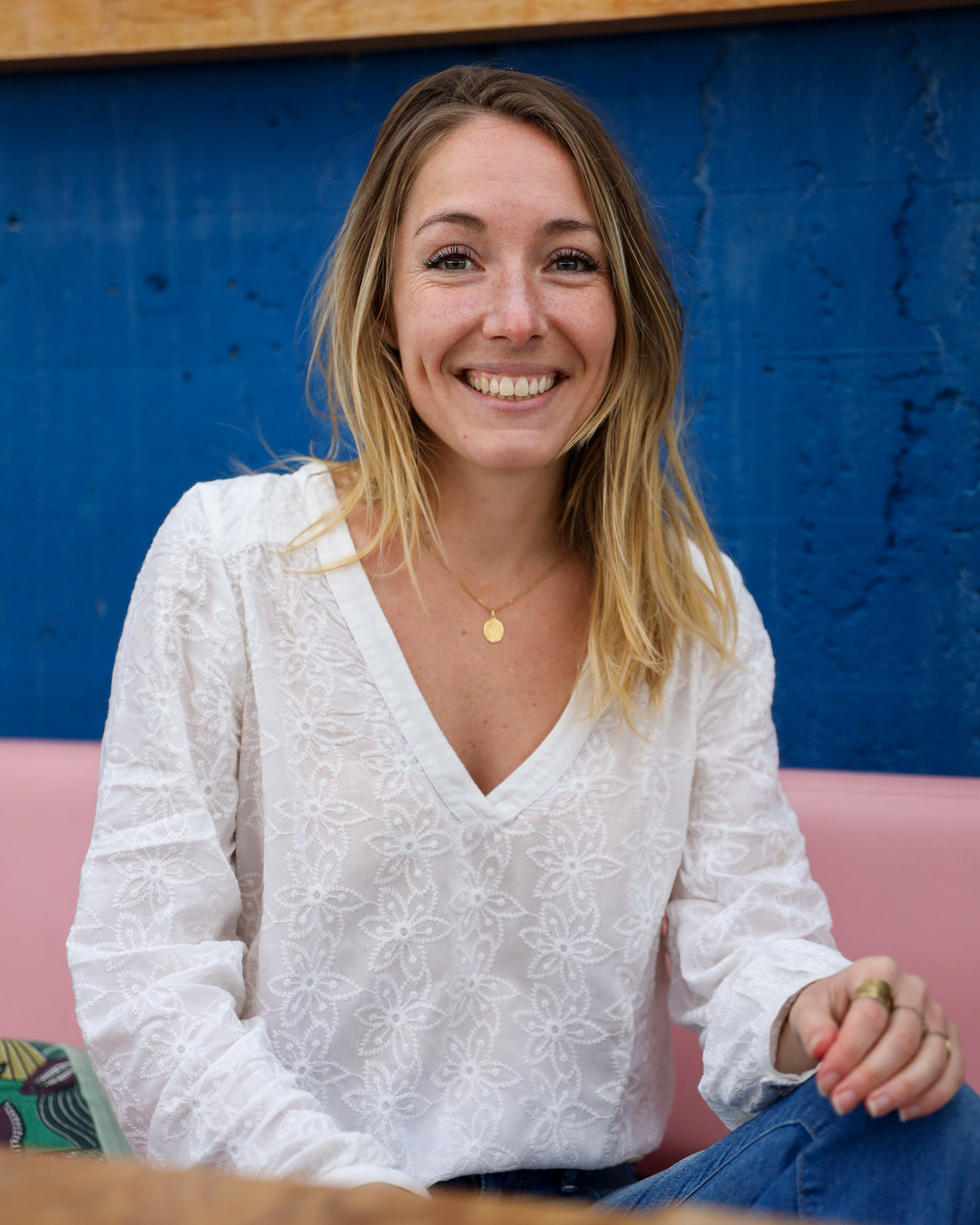
And if you could chat with coworking members?
Manon: We genuinely want to know how we can help or participate in their success. We take joy in seeing people meet here and undergo positive transformations, and that's how we can contribute to their growth. So our question would be, 'What can we do within our capacity to support your growth?'
Last but not least, where do you want to bring Voisins next?
Kasper: Initially, as I mentioned in response to another question, we didn't approach the project like a typical venture capital project with the sole goal of exiting quickly with the highest possible valuation.
From the very beginning, we planned Voisins to be a financially sustainable project. It was natural for us to focus on creating a project that we could keep and evolve, rather than creating and selling.
Our main objective is to make the project sustainable, ensure continued growth, and, on a more conceptual or visionary level, have a positive impact by alleviating burdens and obstacles in office management for our users.
We aim to provide a dynamic and conducive environment for creation and networking, where our users can thrive and succeed in their projects.
Our goal is to make a meaningful impact and to achieve that, we need to expand to more cities, open more centers, and grow. However, we do not have the vision of conquering the world or dominating. That's not our approach.
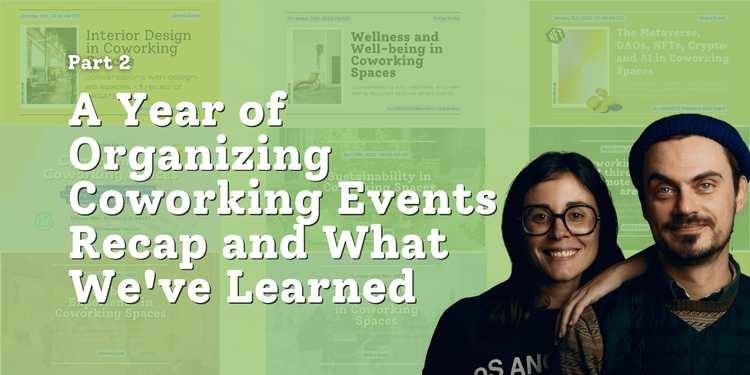




Member discussion